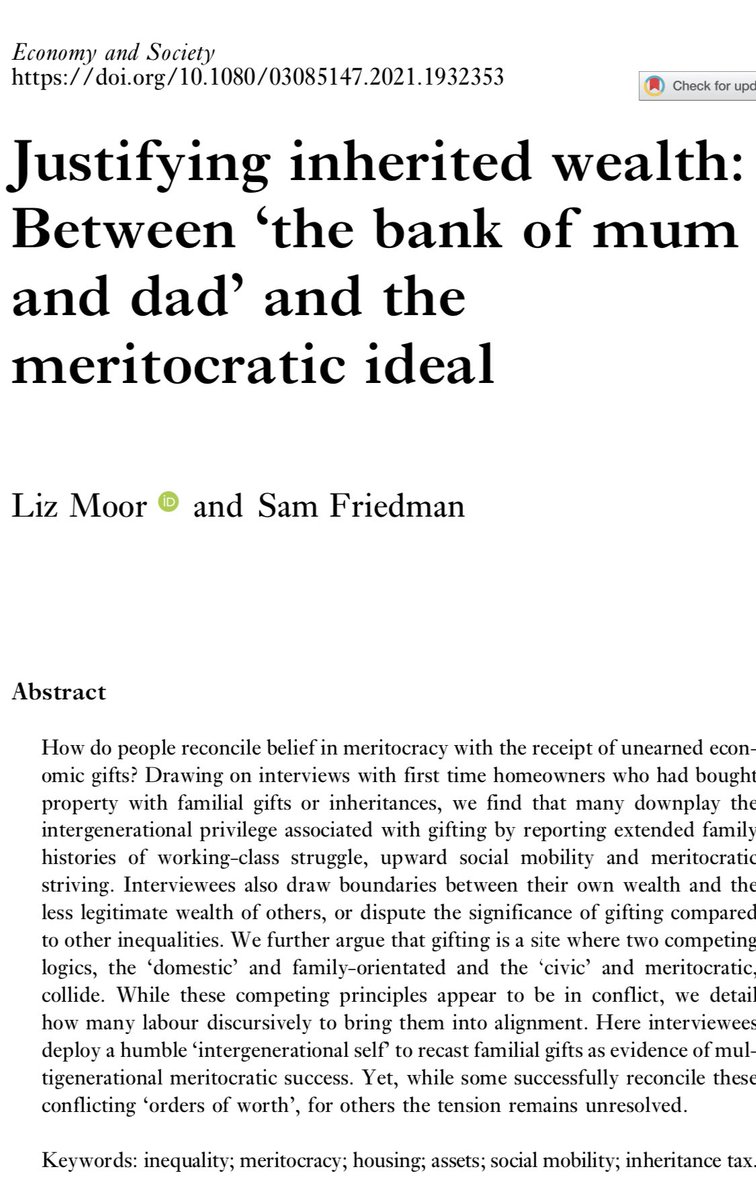
New Open-Access Research!
How do people reconcile belief in meritocracy with the receipt of unearned inherited wealth?
@lizmoor and I explore drawing on interviews with first-time homeowners who had bought property with familial gifts 1/8
tandfonline.com/doi/pdf/10.108…
How do people reconcile belief in meritocracy with the receipt of unearned inherited wealth?
@lizmoor and I explore drawing on interviews with first-time homeowners who had bought property with familial gifts 1/8
tandfonline.com/doi/pdf/10.108…

We find widespread, though not universal, discomfort at receiving unearned gifts, and that interviewees employ distinctive strategies to both justify their receipt and to offset feelings of discomfort 2/8
Many deploy ‘origin stories’ that downplay their own, often privileged, upbringings and instead situate their subjectivity as rooted in working-class or upwardly mobile extended family histories 3/8
This ‘intergenerational self’ attempts to reconcile the tension between meritocracy and the receipt of unearned gifts, deflecting suspicions of ascribed privilege and instead positioning gifted money as interviewees’ ‘own’ through a multigenerational conception of subjectivity4/8
Interviewees also draw boundaries between their own wealth and the less legitimate wealth of others, or dispute the significance of gifting compared to other inequalities. 5/
We argue, following Boltanski and Thévenot, that gifting is a site where two competing ‘orders of worth’ collide - the ‘domestic’ and family-orientated on one hand and the ‘civic’ and meritocratic on the other. 6/8
While these principles appear conflicted, we detail how many labour discursively to bring them into alignment – suggesting one reason for the lack of political appetite for increasing inheritance tax or taxing wealth to pay for the current social care crisis 7/8
By recasting gifts as evidence of one’s place within an extended family project of upward mobility,or by positioning gifting as a mechanism for supporting ‘ordinary’ working- or lower middleclass families,our interviewees make these seemingly conflicting principles compatible 8/8
• • •
Missing some Tweet in this thread? You can try to
force a refresh



